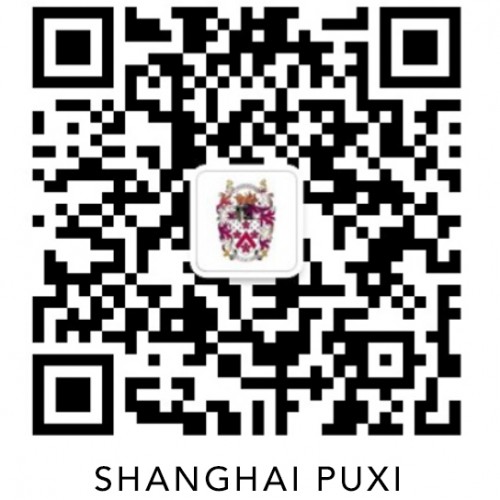SE21: Shaping the Innovators and Entrepreneurs of Tomorrow
The desire for adaptive, highly skilled adults in the workplace has been well documented by business leaders and industry specialists over the years. The National Association of College and Employers (NACE) found in 2019 that the top 3 attributes employers seek in new employees include communication skills, problem-solving skills and the ability to work in a team.
At Dulwich College Shanghai Puxi, our school leaders and educators regularly reflect on their curricula and educational programmes to ensure learning experiences and relevant opportunities support our adults of the future. Along with specific subject knowledge and understanding, crucial and highly desired learning outcomes include the 21st century skills of critical thinking, creativity, collaboration and communication (Partnership for 21st Century Skills, 2009).
In our Primary School, we place significant value on developing students who can think critically about new information and complex issues they will encounter throughout life. Modern education calls for students to transfer their learning to real-world situations. When students are engaged in authentic contexts, they are more likely to see the relevance of what they are learning (Jay McTigue et al, 2020). Through the process of transferring, students apply skills rather than simply recalling them, develop strategic thinking rather using rote learned skills or facts, and are able to apply their learning in new situations (McTighe & Curtis 2019). Our inquiry approach and associated SE21 projects promote a deeper understanding of subject knowledge and facilitate the transfer of learning to real-life contexts. Students work in collaborative teams to pose questions and participate in research. They think creatively as they evaluate and solve problems, often innovating and planning actions to make a difference.
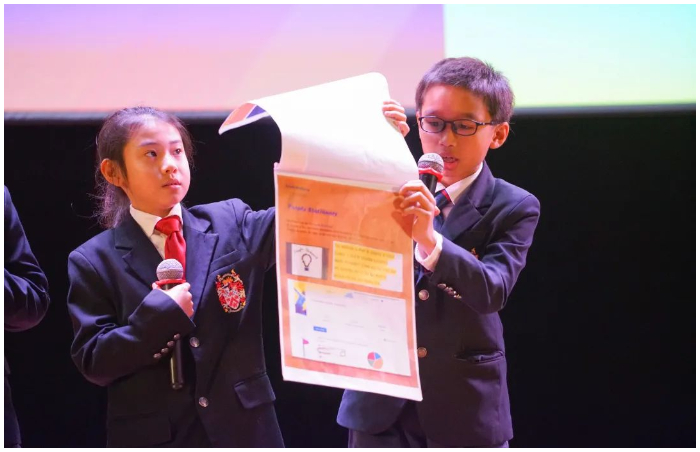
Our Educational Technology Coach, Mrs Amelia Rubin, explains how our Maker Space is providing further learning opportunities and developing new skills in technology to support our innovators and entrepreneurs of the future.
Can you make a functioning Minecraft controller out of clay and paperclips? How about coding an algorithm that will play different songs through your headphones depending on how you move your body? Design a board game, experience VR, stick paperclip arms to a cup and make a new friend?
Here at Dulwich College Shanghai Puxi we can - and we do! I'm excited to share with you more about our newly redeveloped makerspace, which every day is full of colour and sound and the sheer joy of creation.
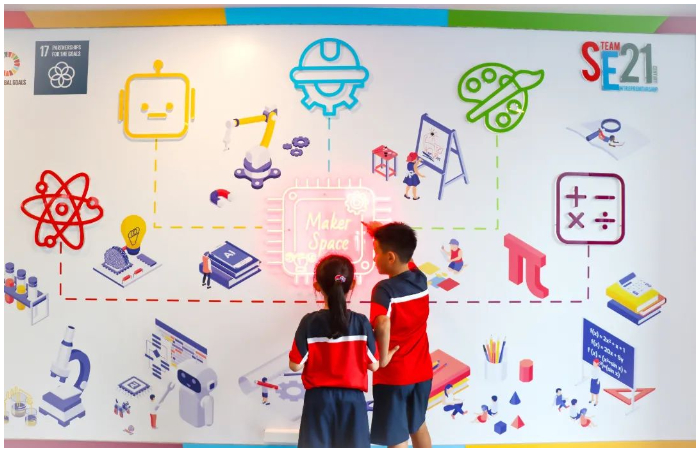
Welcome to a space where anyone can come and stare at a wall of ribbons, feathers, bells, and string and be inspired to invent - like a working piano made of pompoms and foam, or a tiny cardboard drink-holder for a fairy living in a forest. Our 3D printers, built into the primary curriculum itself, teach students about modern methods of prototyping - and the Protocycler+ machine recycles any broken or unwanted prints into usable filament that can be printed with again and again.
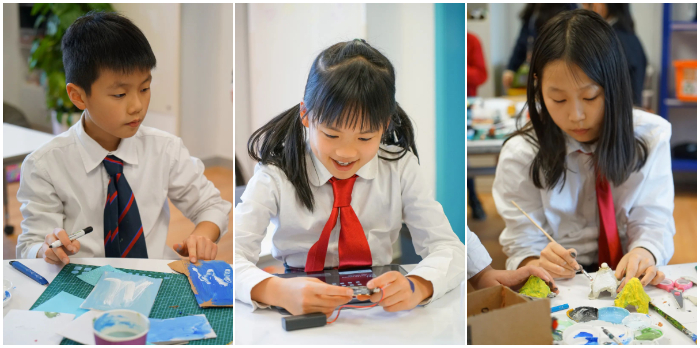
From snap-together circuit boards all the way to Arduino and jumper wires, we host maker tools for all abilities. With block coding, BBC micro:bits have been used to make step counters, musical instruments, and flashing nametags. The ingenuity of our students knows no bounds - they are constantly surprising us with what they can create.
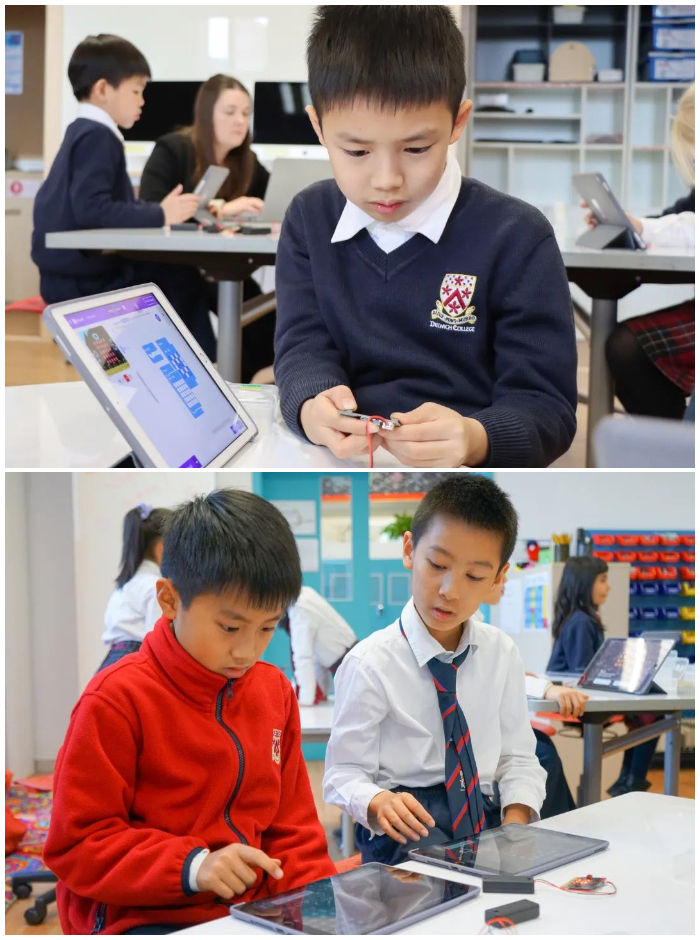
Before our students even get to the making part of the makerspace, they can take a seat on a beanbag and brainstorm to their heart's content. From whiteboards on wheels to glass panels and windows, to the surface of the tables themselves - everything in here can be written on, and students can take photos of their ideas to trigger new thinking later on. Following the process of Design Thinking, students empathise with a target audience and define exactly what it is that they are wanting to achieve. They iterate then prototype their many ideas before coming to the testing and refining stage. Our Year 6 students, hard at work learning how hydroponics works, did just this recently as they used cardboard tubes and clay to test out final designs before they build working systems to water our rooftop garden.
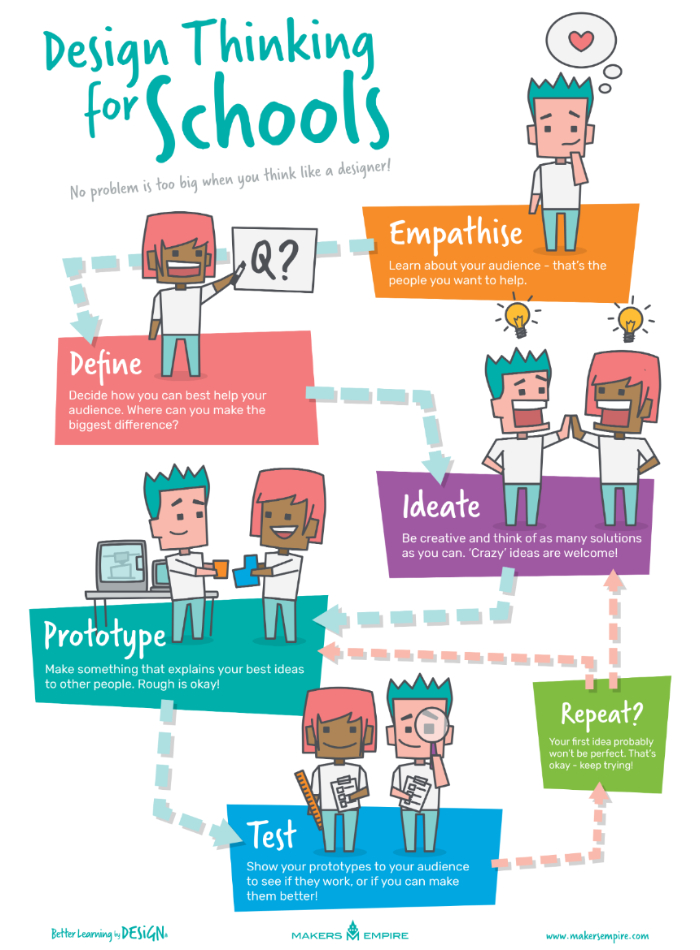
An intrinsic part of forging an academically rigorous curriculum at Dulwich College Shanghai Puxi is giving space for creativity to flourish. Where our children learn about sustainability, we need to provide them with ways to be sustainable. Where they research apartheid and rights, we need to support them in demonstrating their learning in novel and unique ways. Where we want to prepare our learners for the 21st century world, we need to provide them with the space and tools in which to build meaningful and physical digital products. And where we want those products to have a slightly wacky flair… well, we have a box of googly eyes just waiting to be glued.
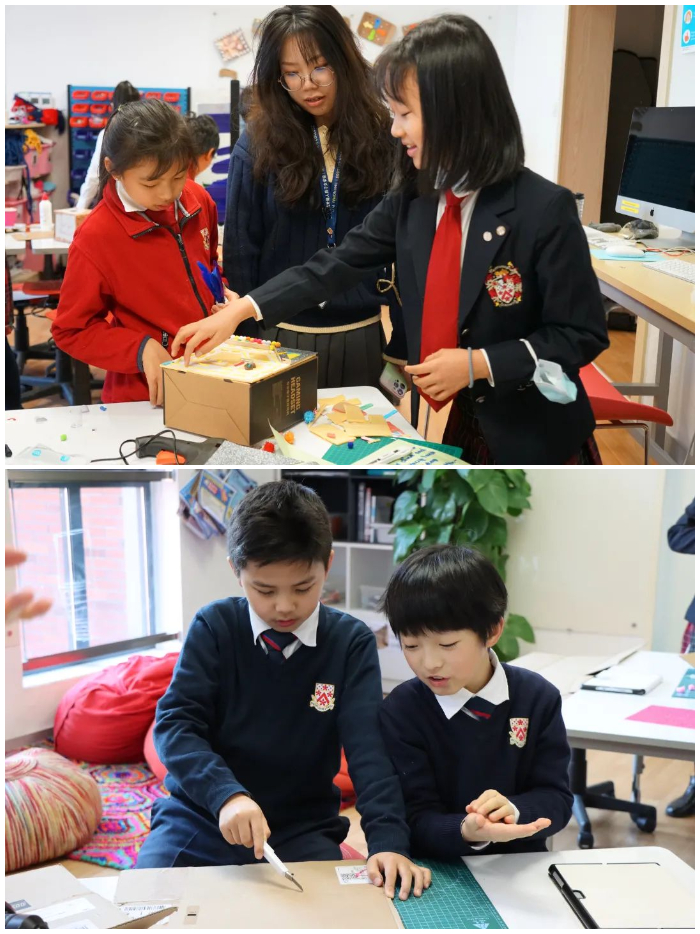
With a strong understanding of a cycle of inquiry and with exposure to a variety of new skills and technologies, could you imagine a group of passionate students who were so appalled at the amount of plastic waste produced from disposable whiteboard pens at a school that they decided to bring about change? These students might conduct research about the use of writing implements to understand more about the problem facing schools and explore alternative options from around the world. They may even decide to design and produce their own pen casing made from recycled plastic using a 3D printer before meeting the school’s senior leadership team to market their design and urge the school to act. Well, that is exactly what happened in Year 5 with their last SE21 project. A genuine demonstration of passion, creativity, communication and critical thinking.
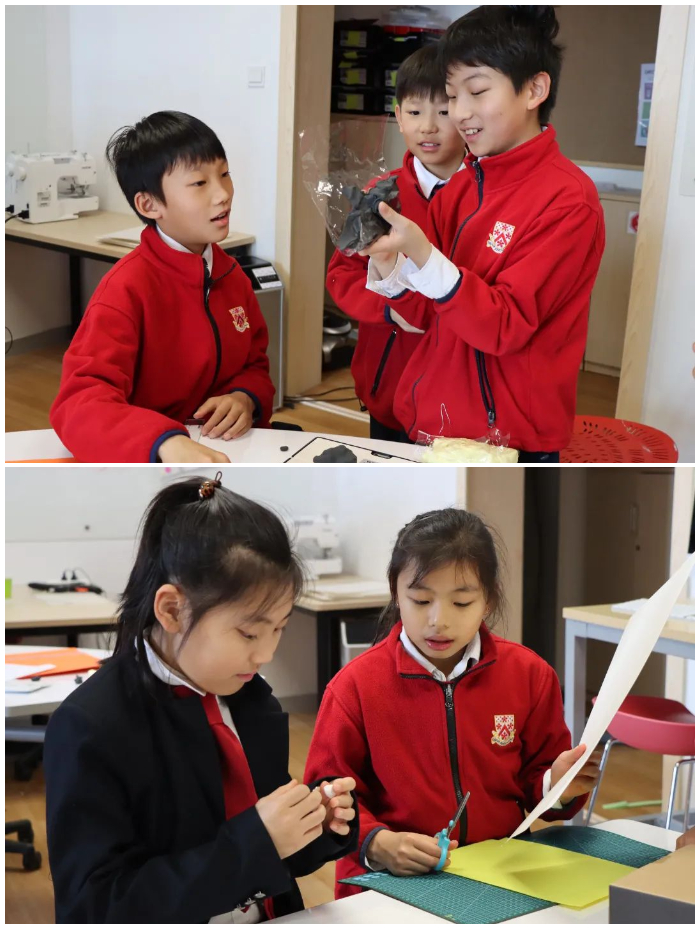
The educationalist, Sir Ken Robinson, states that when students leave school, they should be equipped with eight core competencies in order to engage effectively in the economic, cultural, social and personal challenges they will inevitably face in their lives. These core competencies are curiosity, creativity, criticism, commmunication, collaboration, compassion, composure, and citizenship (Robinson, 2022). Our SE21 projects continue to flame curiosity, ignite hidden passions and provide opportunity for students to transfer skills and understandings to authentic contexts. Unique and beneficial actions which result from such SE21 projects is one way in which our students grow their competencies as a true global citizen, who can and will make a difference.
References
Jay McTighe, Kristina J. Doubet & Eric M. Carbaugh (2020), Designing Authentic Performance Tasks and Projects, Alexandria, VA.
Kath Murdock, The Power of Inquiry (2015), Seastar Education, Australia.
McTighe & Curtis (2019), Leading modern learning: A blueprint for vision-driven schools, Bloomington, IN
National Association of Colleges and Employers, Job Outlook 2019, Bethlehem, PA.
Partnership for 21st Century Skills (2019) P21 framework definitions.
Sir Ken Robinson & Kate Robinson (2022), Imagine If: Creating a Future for Us All, Penguin Books.





